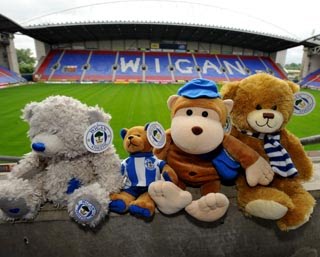The war on drugs is already lost
What is losing? No-one really knows. In football there's a final whistle. In politics, there are elections. But policies have no timer, only consequences. How bad must those consequences be for us to call it quits over the war on drugs?
There are, and always have been, two drugs wars. One is bloody and violent and takes place on the streets of inner cities across the world. The other is seemingly calm and intellectual and it takes place in thinktanks, pubs, newspaper comment pages and universities - but rarely parliaments.
The intellectual drug war is now finished. The consensus has been reached. Today, Professor David Nutt, who was sacked by Alan Johnson as chief drugs adviser to the government for performing his task with a foolhardy commitment to truth and accuracy, revealed his alternative commission's drug classification list. The list is based, rather charmingly, on the actual harm that drugs cause, both personally and socially, rather than the arbitrary and demented ABC system we are rather unconvincingly labouring under. Unsurprisingly, the new list marks alcohol as the most damaging drug, followed by crack cocaine and heroin. Ecstasy is very far down.
In California, Proposition 19, which will be voted on tomorrow at the same time as the midterm elections, would allow marijuana to be legalised, regulated and taxed in the state. Campaigners hope the yes camp - running approximately neck-and-neck - will win and start a domino effect across the country - and then hopefully the world.
Intellectually, pro-prohibitionists are a dwindling and pitiful breed. Alone and without allies they make their case to an empty room. Behind them, almost every government in the world supports their barbaric and simple-minded agenda. It is baffling.
When you actually sit down with politicians, they usually turn out to be much more complex. Most of them understand the pro-regulation arguments and privately admit to agreeing with them - but never in public. That would be political suicide. David Cameron and Nick Clegg, both sensible men with sensible positions on drugs, don't dare mention it. It is the truth that dare not speak its name.
Drug prohibition is philosophically wrong. It denies us the freedom to decide what we put in our own bodies. It is medically wrong. The black market allows drug peddlers to corrupt the substances in a bid to boost quantities, something which would be impossible if the product were regulated. It is socially wrong. It funds the black market and allows drug use to take place in a social netherworld, where addiction and crime are more likely to follow. It is logically wrong, in that decriminalisation tends to see usage and potency drop. When Jacqui Smith obediently followed Gordon Brown's orders and re-classified marijuana, for instance, its usage was actually falling.
But a mugging here or a burglary there hardly compares to what this insane policy does to us strategically. Afghan farmers are told to halt poppy production. But the poppy pays much, much better than any other product. They are not so foolish as to follow those coalition orders, not if they can get away with it. Much of that money goes to the Taliban, to fund its war against our troops. By forcing the product into the black market, we lose control of it. That means the same thing in Takhar as it does in Glasgow.
Read more at uk.news.yahoo.com


No comments:
Post a Comment